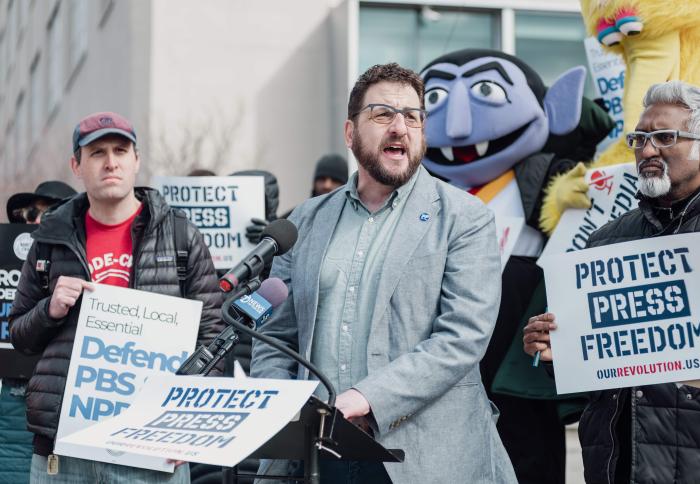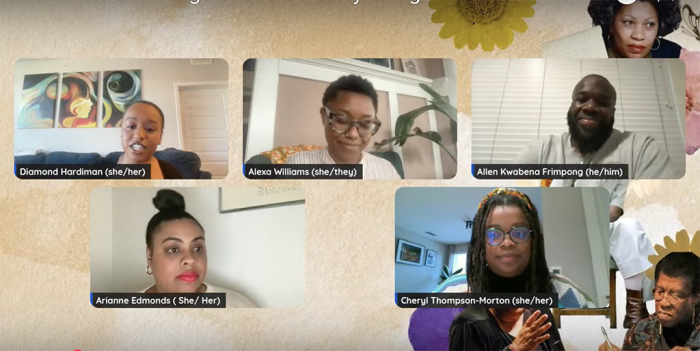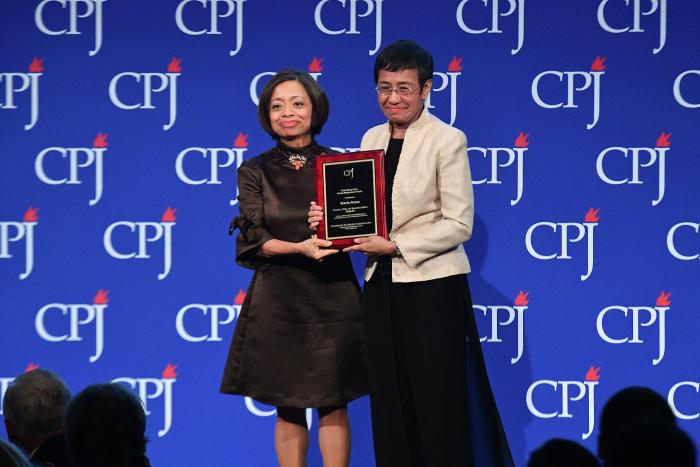Congress Offers Hope in the Fight for Prison-Phone Justice

Too many incarcerated people and their families pay inflated and extortionate prices for calls to and from jails, prisons and detention centers.
So last week, in advance of a hearing before the House Subcommittee on Communications and Technology, Free Press Action and more than 80 grassroots advocates, civil-rights, consumer-rights and faith-based organizations sent a letter to congressional leaders calling on lawmakers to pass legislation that would help put an end to predatory prison-phone rates.
Cheryl Leanza, a policy adviser for the United Church of Christ, Office of Communication, Inc., testified before the subcommittee and underscored the importance of passing the Martha Wright Prison Phone Justice Act, which Rep. Bobby Rush (D–Illinois) has reintroduced. The bill is named in honor of Mrs. Martha Wright-Reed, a grandmother whose constant struggle over whether to purchase medication or pay for calls to her incarcerated grandson led her to become the lead litigant in an effort to force the FCC to make calling rates more affordable.
What’s going on and how did we get here?
The problem starts with the nature of phone service in carceral facilities like jails, prisons and detention centers. Incarcerated people and those trying to reach them have no choice but to use the provider contracted with a particular facility, and that provider is but one of a few in a highly concentrated marketplace.
To make matters worse, many of these facilities receive a cut of the revenue, or a “site commission,” that the prison-phone company earns from folks making and receiving calls. That means that the facility has a financial incentive to choose the provider that promises it the biggest cut. This gives these companies free rein to tack on astronomical fees and charges for incarcerated people and their families, and then give a cut to the carceral facility.
The Prison Policy Initiative has discovered that some families spend $1 per minute on these phone calls — and research by the Ella Baker Center for Human Rights has found that one-third of families with incarcerated loved ones go into debt while trying to stay in touch.
This is happening while the price of regular phone calls has dropped sharply from the days when you had to count your texts or minutes. But time — and the market — has left incarcerated people and their families behind to pay outrageous per-minute prices for calls, plus additional charges and unnecessary fees.
The impact of astronomical phone rates for incarcerated people is severe. These rates too often prevent them from maintaining contact with their families, friends, clergy and legal counsel. That makes it hard to maintain a reliable support structure outside and makes reentry more difficult.
Spurred by Mrs. Wright-Reed’s advocacy — and later the impassioned leadership of former FCC Commissioner and Acting Chairwoman Mignon Clyburn — in 2016 the agency took the initial steps needed to set a national cap on these exorbitant rates. But the prison-phone industry sued the agency shortly thereafter and the Trump FCC subsequently refused to defend the rules in court.
This failure set the stage for a 2017 federal court ruling that the FCC could not set a cap on rates for intrastate calls. These calls represent the bulk of the calls made by incarcerated people and their families.
That’s where the Martha Wright Prison Phone Justice Act comes in
This critical legislation would get the FCC’s reforms back on track by, first and foremost, clarifying the agency’s authority over intrastate calls. The bill would also:
- Immediately set a much more affordable interim rate cap for intrastate and interstate calls alike
- Set caps on certain predatory fees and charges, while prohibiting other unapproved fees and charges and ending “site commissions”
- Require the FCC to take swift and regular action to protect incarcerated people no matter what technology they use to communicate (regular phone calls, video calls, etc.)
Sen. Tammy Duckworth (D–Illinois) reintroduced similar bipartisan legislation in the Senate that would also clarify the FCC’s authority, and the agency is currently considering lower caps and other needed reforms.
On the state and local levels, grassroots advocates are pushing (and succeeding in!) efforts to make phone calls from jails and prisons free. Earlier this year, Connecticut became the first state to do so. But the bills bearing Mrs. Wright-Reed’s name are still critical to ensure that incarcerated people everywhere get a fairer deal.
Unfortunately, she passed away on Jan. 18, 2015, before fully realizing her dream of just communications rates for incarcerated people. No other grandmother or family member should ever have to make these difficult financial decisions just to keep in touch with their loved ones. We still have a long way to go before all these efforts bring relief to incarcerated people and their families, but there’s hope.
There is (rare) bipartisan agreement on Capitol Hill that the current communications-services marketplace in correctional facilities is not competitive or reasonable. Urge your members of Congress to support the Martha Wright Prison Phone Justice Act in the House and the Martha Wright-Reed Just and Reasonable Communications Act in the Senate.





